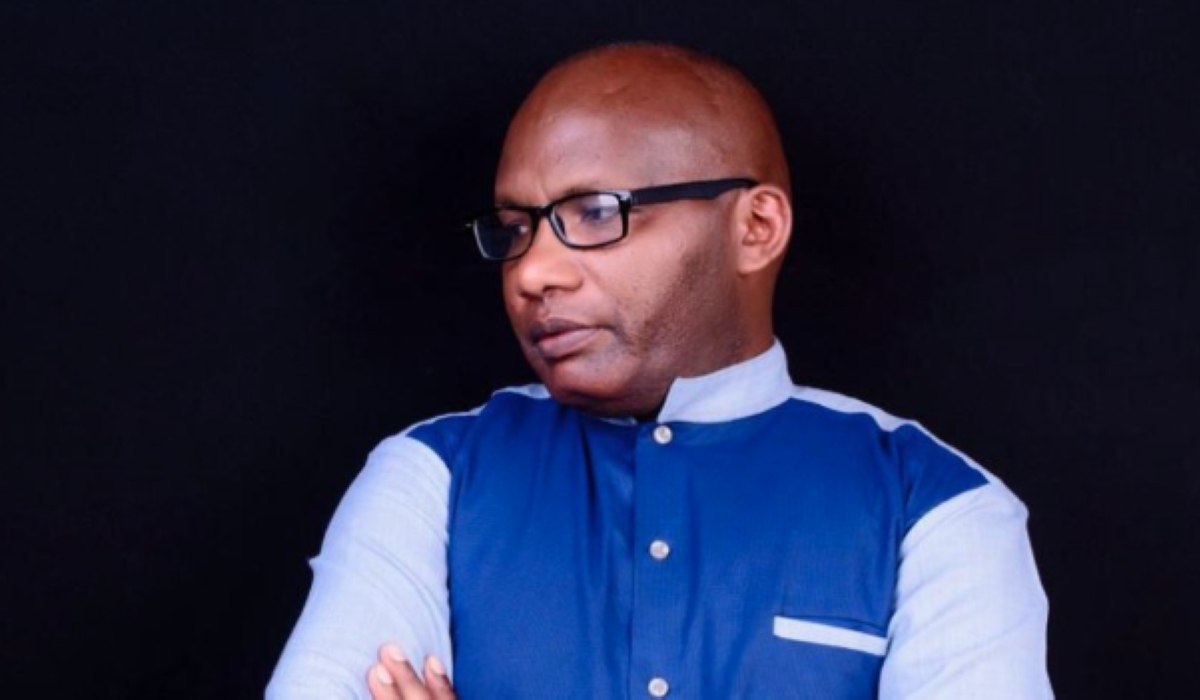
The incomplete colonial narrative: A Rwandan researcher’s perspective on Belgium’s impact in Rwanda and the Democratic Republic of Congo
Belgium’s interests in DR Congo reach further than the ongoing crisis and the instability in Rwanda.
Research indicates that these interests are fundamentally linked to a colonial-era agenda focused on the marginalization and extermination of Nilotic communities.
Belgian colonialists perceived Nilotic communities, thought to have migrated from the Nile Valley, as resistant to colonial authority and challenging to influence with Western propaganda. In contrast to other groups that colonial powers deemed simpler to control, the Nilotic were perceived as a significant challenge to European supremacy.
Jean Laurent Gatera, a Rwandan researcher and expert in Peace Studies and Conflict Transformation, has conducted a thorough analysis of the DR Congo crisis in his book, ‘The Genesis and Conflict Trends in Eastern Democratic Republic of Congo: The Causes and Consequences of Kivu Conflict (2024).’
In an interview with The New Times, Gatera articulated that the crisis is rooted in divisions from the colonial era and the political strategies of regimes following independence.
He contends that the “Bantu vs. Nilotic” ideology, especially as advocated by the Belgians, persists in influencing conflicts within the region.
Gatera posits that Belgium’s lasting engagement in DR Congo transcends mere economic exploitation. The nation has a historical commitment to the eradication of Nilotic communities, a tactic that traces back to the colonial era. European colonisers skillfully employed a divide-and-rule strategy, embedding ethnic animosities that continue to endure in contemporary society.
This ideology was instrumental in the 1994 Genocide against the Tutsi in Rwanda and continues to incite conflicts in the DR Congo. Belgium has provided support to the Congolese army, fully aware of its collaboration with militias like the FDLR, a group accountable for the Genocide Against the Tutsi and that has persisted in its genocidal agenda in the DR Congo.
The enduring impact of ethnic classification and persecution
Belgian colonisers linked Nilotic people to historical resistance movements, making comparisons to Ethiopians and Egyptians. This colonial viewpoint shaped policies and social frameworks in the Great Lakes area, exacerbating enduring tensions.
The persecution and displacement of Kinyarwandophone communities in DR Congo, frequently linked to colonial border-drawing, is profoundly connected to these ideological divisions. In Ituri province, the Hema, along with the Banyamulenge in South Kivu and the Tutsi in North Kivu, were categorized as Nilotic/Cushitic, leading to their perception as adversaries.
Militia groups like the FDLR and Wazalendo have focused their attacks on Kinyarwandophones and others, driven by perceived physical characteristics and cultural traits associated with Tutsi identity.
“The Hema, for instance, have faced attacks because of their perceived similarity to the Tutsi and alleged backing of the M23 rebel group, which advocates for human rights and opposes poor governance,” Gatera explains.
Individuals affected by these conflicts endure killings, torture, displacement, and even acts of cannibalism, while their suffering remains largely overlooked by the international community.
Gatera argues that numerous observers simplify the crisis by linking it exclusively to the mineral wealth of DR Congo, neglecting the more profound ethnic and ideological elements involved.
The involvement of mercenaries in the conflicts of DR Congo
Historically, the DR Congo has depended on foreign mercenaries to uphold control. From King Leopold II’s harsh colonial governance to the leadership of Mobutu Sese Seko after independence, Congolese administrations have repeatedly relied on European mercenaries, armed militias, and foreign military forces.
Gatera follows this pattern to the late 19th century, when Leopold acquired extensive territories during the Berlin Conference of 1884–1885. His administration enacted brutal measures against those who opposed colonial rule. Even after gaining independence, Belgium continued to exert indirect control over its former colony, shaping governance and stifling pro-African movements.
The researcher indicates that the strategy to eliminate the Tutsi in Rwanda, as well as those who sought refuge in DR Congo, was initially set in motion by former Rwandan President Grégoire Kayibanda and his Congolese counterparts. It was subsequently put into action during the administrations of President Juvénal Habyarimana and former Congolese President Mobutu Sese Seko, both of whom received training in Belgian military institutions and were united by an anti-Tutsi ideology.
In 1976, agreements between Mobutu and Habyarimana led to the deployment of Hutu settlers in Eastern Congo, ostensibly for agricultural labor. This group, which was later joined by the FDLR, was called MAGRIVI (Mutuelle des Agriculteurs de Virunga), an alleged agricultural cooperative that concealed a systematic plan to eradicate the Tutsi.
By the 1980s, MAGRIVI had evolved into a network of Hutu extremists integrated within Congolese society. This network established the foundation for subsequent massacres following its alliance with the FDLR in 1994. Gatera characterizes the FDLR as “a domesticated pack of wolves,” fulfilling various roles for both the Congolese government and Western interests.
In spite of global disapproval, the FDLR continues to operate due to its tactical significance.
The FDLR supplies labor for mining, agriculture, and charcoal enterprises—activities that numerous Congolese are reluctant to undertake. Gatera explains that in exchange, they obtain weapons and logistical support.
The ideological influence of the FDLR is even more concerning. “The focus should not be on their numbers, but rather on the ideology they promote.” “One person has the power to impact thousands,” he cautions.
The military strategy of the DR Congo government
The Congolese government has opted for a military strategy against the M23 rebel group, rather than tackling issues of governance failures and ethnic persecution. M23 arose as a result of systemic discrimination, corruption, and the denial of rights to specific communities. Gatera contends that Kinshasa’s hesitance to participate in peace negotiations arises from the understanding that diplomacy would reveal its lack of legitimacy.
Furthermore, the government utilizes the nation’s extensive mineral resources to obtain military assistance from international partners.
Gatera emphasizes that achieving peace in DR Congo relies on substantial negotiations. The government should initiate discussions to facilitate the return of refugees, protect human rights, and promote inclusive governance.
Should Kinshasa persist in dismissing diplomatic efforts, M23 may find it necessary to intensify their military actions. Gatera suggests that this may result in a move towards the capital or potentially the proclamation of Eastern DR Congo as an independent state.
All Categories
Tags
+13162306000
zoneyetu@yahoo.com



